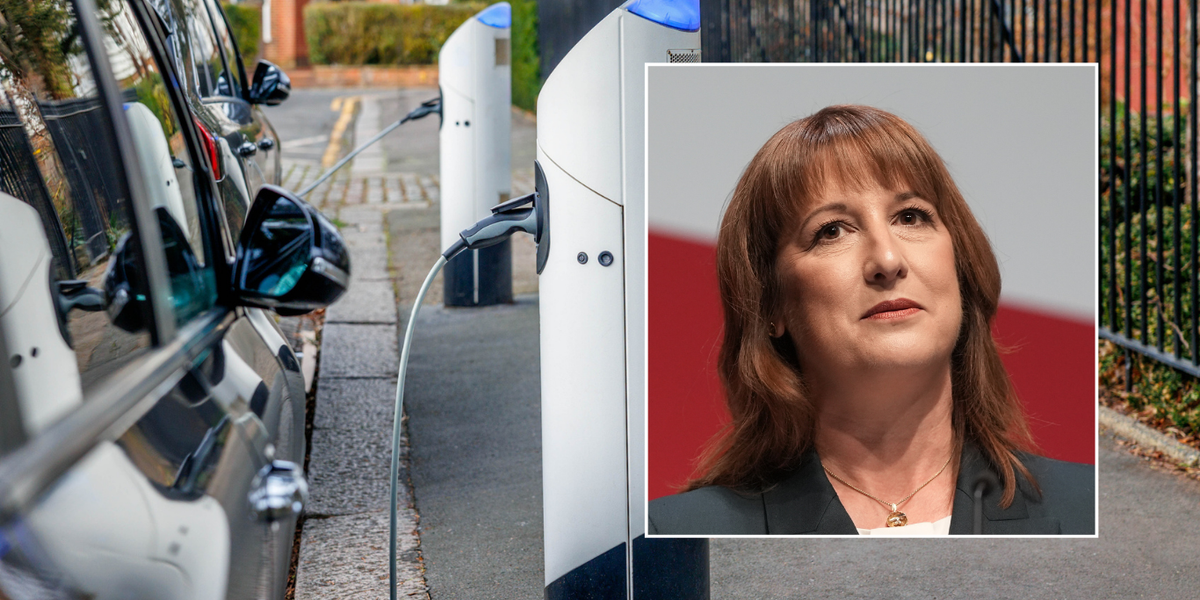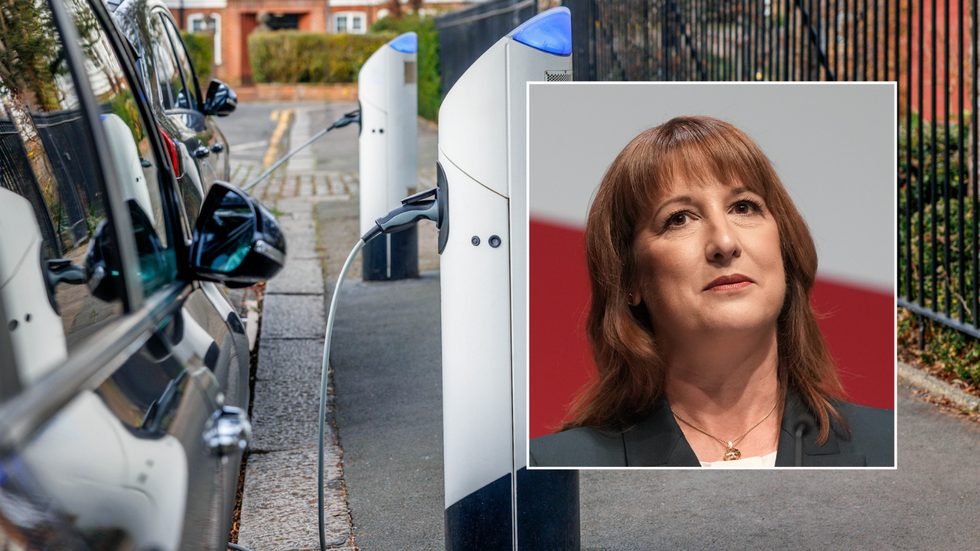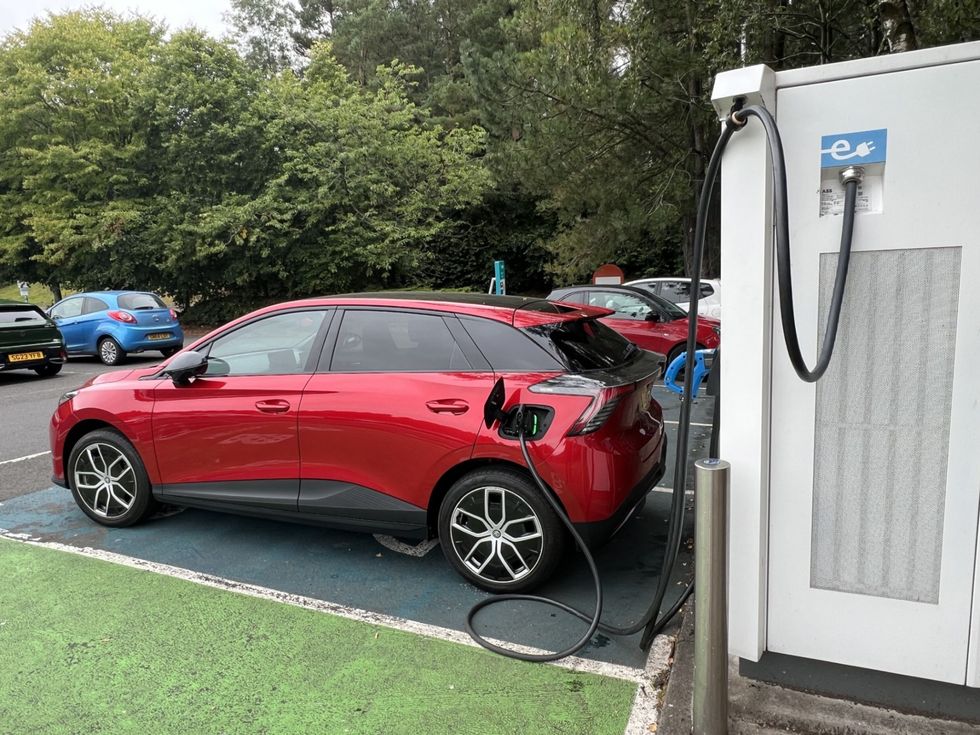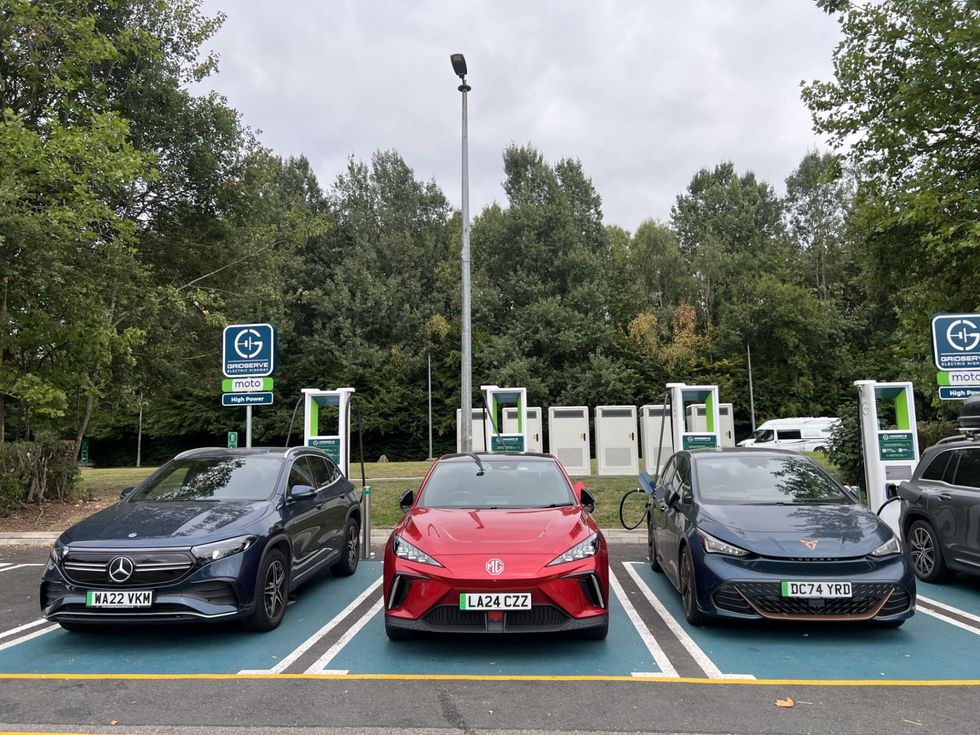



Rachel Reeves has been urged to introduce a significant reduction in VAT rates for public electric vehicle charging infrastructure at the upcoming Autumn Budget.
Experts have called on the Chancellor to align public charging VAT with domestic electricity rates, slashing it from the current 20 per cent rate to just five per cent.
This proposed tax reform could deliver substantial savings for millions of motorists who lack access to home charging facilities, particularly those residing in flats or properties with street parking only, experts suggested.
The appeal follows data which found that electric vehicle running costs have reached a similar level to what diesel vehicles pay when relying solely on public charging networks.
The report revealed that operating an electric vehicle using exclusively public charging infrastructure now costs roughly the same as running a diesel car, achieving nearly 50 miles per gallon.
Total charging expenses for a 1,285-mile drive from Cambridgeshire to the Scottish Highlands and back amounted to £203.03 for an MG4 Extended Range, while an equivalent journey in a Mercedes-Benz E220d diesel car would have cost £172.48, making it cheaper to travel in a traditional vehicle
This goes against the Government's own goals and Zero Emission Vehicle mandate, which requires all new car sales to be electric or hybrid by 2030, with at least 28 per cent needing to be electric by this year.
However, if public charging attracted the same five per cent VAT rate as household electricity, the electric vehicle's running costs would have dropped to £172.57, making it marginally cheaper than the diesel alternative.

The Chancellor has been urged to cut VAT at public charging points to five per cent
|GETTY/PA
"For a third of drivers, an electric car has never appealed, but we're now at the tipping point where an EV could make sense even if you can't charge at home," stated David Ross, Editor of Honest John.
The investigation uncovered notable price disparities between different charging locations across the UK's road network.
During the outbound journey, which relied exclusively on motorway service station chargers, costs reached £111, while the return journey using alternative routes totalled £92.
Analysis of the data revealed that motorway charging points command premium rates, with prices averaging approximately 10 per cent higher than those found on trunk roads.

The experts found the UK public charging structure to be more expensive than travelling in a diesel car
|HONEST JOHN
This pricing differential represents a significant financial consideration for electric vehicle drivers undertaking long-distance journeys.
The findings highlighted how charging location choices can substantially impact overall journey costs, with motorway services extracting a notable premium from drivers requiring rapid charging during extended trips.
The proposed tax reduction would particularly benefit the 34 per cent of UK households unable to install home charging points, who currently face significantly higher running costs than those with private charging access.
Mr Ross emphasised that implementing this VAT reduction would make mainstream electric vehicles more economical to operate than diesel cars, achieving 50 miles per gallon, even for drivers entirely dependent on public charging infrastructure.

The expert spent more than £200 on charging costs from Cambridgeshire to the Scottish Highlands and back
|HONEST JOHN
Electric vehicle registrations achieved a strong uptake in August, capturing 26.7 per cent of all new car sales, according to UK registration data, marking the highest market share recorded to date.
Infrastructure developments have also dramatically improved the viability of electric motoring, with rapid charging networks now providing adequate coverage even along remote routes such as the A9 between Perth and Inverness, previously identified as the UK's longest A-road stretch without charging facilities.
Mr Ross added: "Users of honestjohn.co.uk told us that their biggest concerns around buying an electric car centred on not being able to charge one at home, range anxiety and the cost of charging."
The research findings suggest these traditional concerns have largely been addressed through technological advances and infrastructure expansion, leaving charging costs as the primary remaining obstacle.
